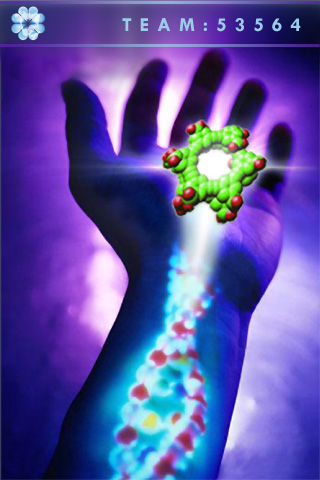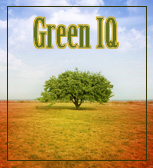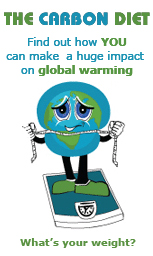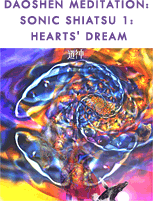Ask Ronit
 I Like Your Ponytail, A Story About Commitment
I Like Your Ponytail, A Story About Commitment
“I like your ponytail.” I said in a playful manner. “Ponytail?” he repeated in a thick French accent. There and then began the most extraordinary odyssey of my life.…
Avoid 90% of the Pesticides in Food, by Avoiding 12 Foods
Why should you care about pesticides in your food?For starters there may be as many as twenty pesticides on a single piece of fruit you eat.…
Dear Mrs. Black,It was January 1967 when this 11 year-old, frightened, little Israeli girl walked into your classroom for the first time. I had only arrived in the country two weeks before.…
With sex all around us, oozing out of our televisions, theaters, magazines, fashion, on the streets, one would think we are the most sexually informed, open and comfortable nation on the planet.”…
I’m sure by now you all have noticed the ongoing meltdown in the mortgage industry. The cause of this whole mess is a little bit complicated, rooted in both the structure of the mortgage industry, and human nature. I’ll try to explain both factors here in layman’s terms.…
Breaking old habits; Creating new Ones
We are mostly habitual beings. Webster defines habit as an acquired mode of behavior that has become nearly or completely involuntary.…
Navigation
Inquiry
Organic farming could feed the hungry
By reli4nt
My hope is that we can finally put a nail in the coffin of the idea that you can’t produce enough food through organic agriculture
-- co-author Ivette Perfecto
A three year study from the University of Michigan concluded that organic farming could yield as much as three times as much food for developing countries without putting additional farmland into production.
This finding refutes the widely held belief that organic practices would be detrimental to farming in developing nations. Organic farming would not only be more profitable and productive, but also more cost-effective, sustainable, and more ecologically friendly. read more »
Humans' affect on global rains confirmed
By reli4nt
Researchers have confirmed that human activities have affected the distribution of global rain patterns resulting in the drying of areas such as India and sub-Saharan Africa while Canada, parts of Russia and parts of Europe have seen an increase in rainfall. The results will be published in the journal Nature on Thursday.
There have been suggestions and debate regarding the nature of changes in weather patterns and whether or not human activity is to blame. Natural factors as well as the consumption of fossil fuels and other other human activities are know to influence the atmosphere. Proponents argue the changes are part of the planet's continually shifting climate patterns. read more »
EU begins enforcing long delayed recycling law
By BBC News
The EU has now put into force an electronics recycling law that was originally slated to be enforced 2 years ago. The Waste Wlectrical and Electronic Equipment (WEEE) requires 4kg (lbs) of electonic waste to be recycled per person. The newly enforeced law shares responsibility for recycling at all point along the consumer spectrum. For starters, manufacturers of electronics are responsible for funding the recycling efforts and retailers are equired to accept the waste from customers. read more »
Google Joins Intel and Others in Green Initiative Launch
Google Inc. joined with Intel, Dell, EDS, the Environmental Protection Agency (EPA), and many other organizations tannouncing the Climate Savers Computing Initiative (www.climatesaverscomputing.org).
The initiative is an effort to "save energy and reduce greenhouse gas emissions by setting aggressive new targets for energy-efficient computers and components, and promoting the adoption of energy-efficient computers and power management tools worldwide." read more »
Folding at Home: Help cure diseases with your personal computer.
By leor
 Folding@home is a distributed client computing effort by Stanford University intended to help understand how proteins assemble or "fold." Exactly how proteins assemble themselves is a mystery, and why proteins sometimes fold improperly or "misfold" is also not fully understood. Many serious diseases are related to the misfolding of proteins, such as Alzheimer's, Parkinson's disease, Cystic Fibrosis, Mad Cow Disease, and several forms of cancer. By donating your CPU's spare cycles, you are contributing to an effort to understand how proteins fold, which is the first step to understanding how basic proteins work and how we might treat these diseases. When you are not using your computer, the processor will run simulations of different proteins and the way they assemble to better help scientists understand why they do what they do.
read more »
Folding@home is a distributed client computing effort by Stanford University intended to help understand how proteins assemble or "fold." Exactly how proteins assemble themselves is a mystery, and why proteins sometimes fold improperly or "misfold" is also not fully understood. Many serious diseases are related to the misfolding of proteins, such as Alzheimer's, Parkinson's disease, Cystic Fibrosis, Mad Cow Disease, and several forms of cancer. By donating your CPU's spare cycles, you are contributing to an effort to understand how proteins fold, which is the first step to understanding how basic proteins work and how we might treat these diseases. When you are not using your computer, the processor will run simulations of different proteins and the way they assemble to better help scientists understand why they do what they do.
read more »
 My Hero
My Hero We Are Sexual Beings
We Are Sexual Beings The Banking Implosion
The Banking Implosion









